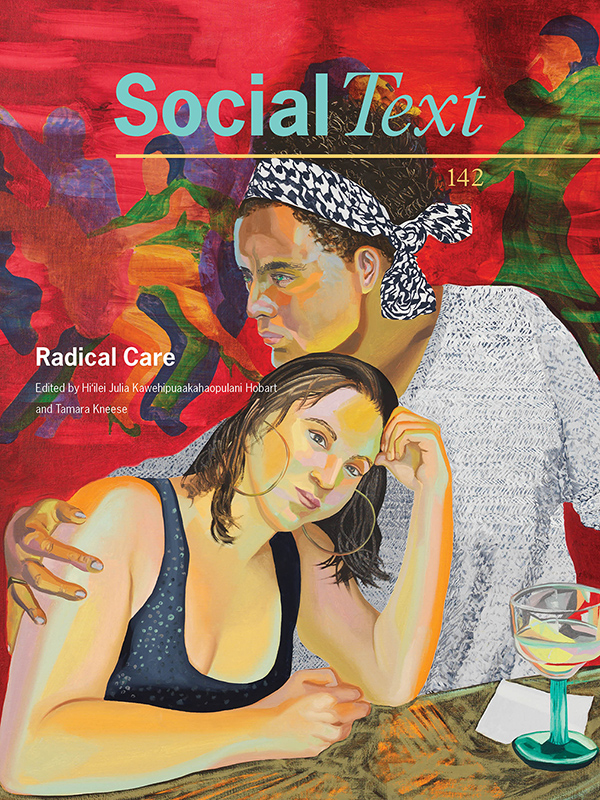On Jan 25 I gave this lecture as part of UC Berkeley Department of Gender and Women’s Studies Social Reproduction in Crisis Series. See below for the flyer that lists all the other upcoming events!
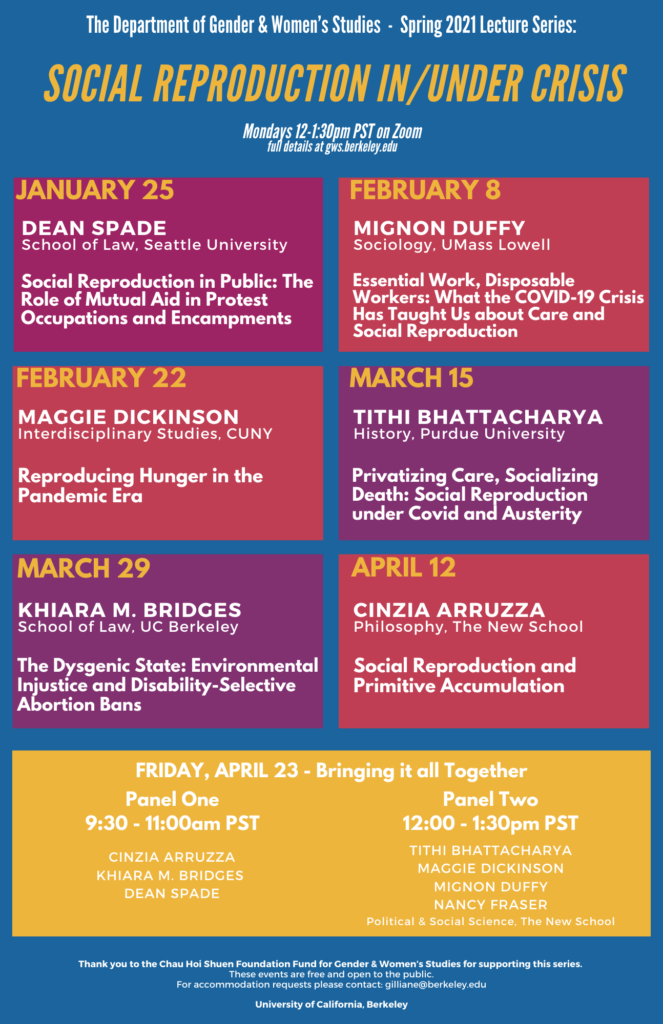
On Jan 25 I gave this lecture as part of UC Berkeley Department of Gender and Women’s Studies Social Reproduction in Crisis Series. See below for the flyer that lists all the other upcoming events!

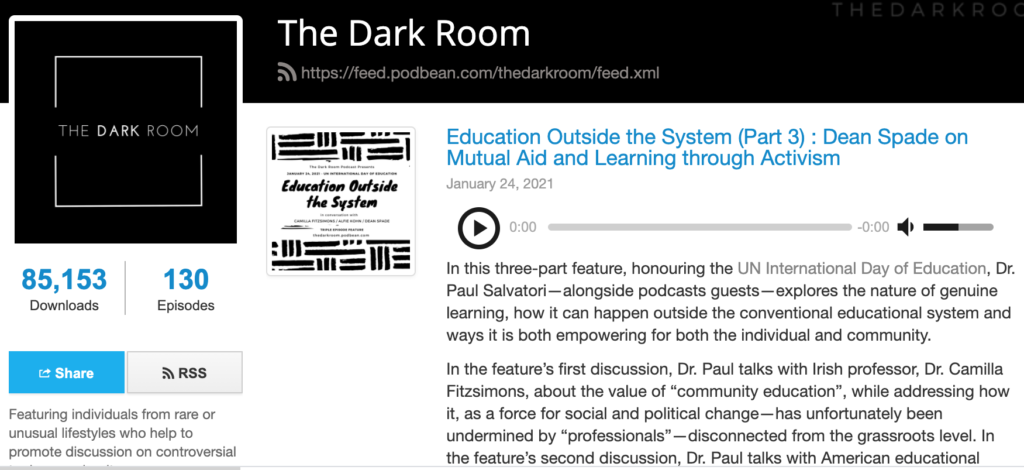
I had a very fun conversation with Paul Salvatori on this podcast episode. Have a listen!
In a new book, Seattle University’s Dean Spade highlights how the organizing and survival tactic could be vital for future disasters.
January 7, 2021

Seattle Community Fridge is a mutual aid group that sprang up during the pandemic. From left, volunteers Beija Flor, Jordan Saibic and Marine Au Yeung install a community refrigerator offering free food in Seattle’s South Park neighborhood, Aug. 20, 2020. (Dorothy Edwards/Crosscut)
Rewinding the film of 2020, it can seem like a lifetime of events transpired in a 365-day span. A pandemic. An economic crisis. Some of the largest protests the U.S. has ever seen. A historic election. Many people are lonelier, hungrier and poorer than ever. But despite the social distance and devastation — and because of it — people also came together.
Continue reading “Crosscut Feature about Mutual Aid”Clara Liang recently interviewed me for In These Times.
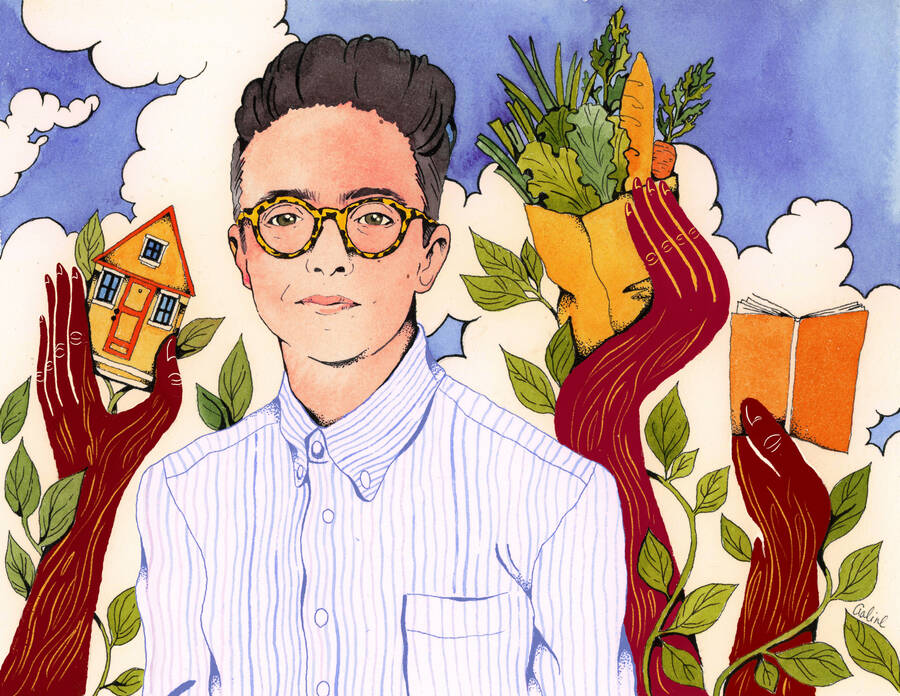
Amid the catastrophe of the pandemic, climate emergency and racist state violence, mutual aid has exploded. Ordinary people around the globe, from Seattle to Nigeria, are finding ways to support each other when the government won’t.Mutual aid isn’t just that we help each other. We help each other based on a shared recognition that the systems aren’t delivering and are actually making things worse. We’re simultaneously building a movement to address the root causes of the crisis we’re in.
Continue reading “New Interview about Mutual Aid with In These Times”Roar Magazine just published this adapted excerpt from my new book.
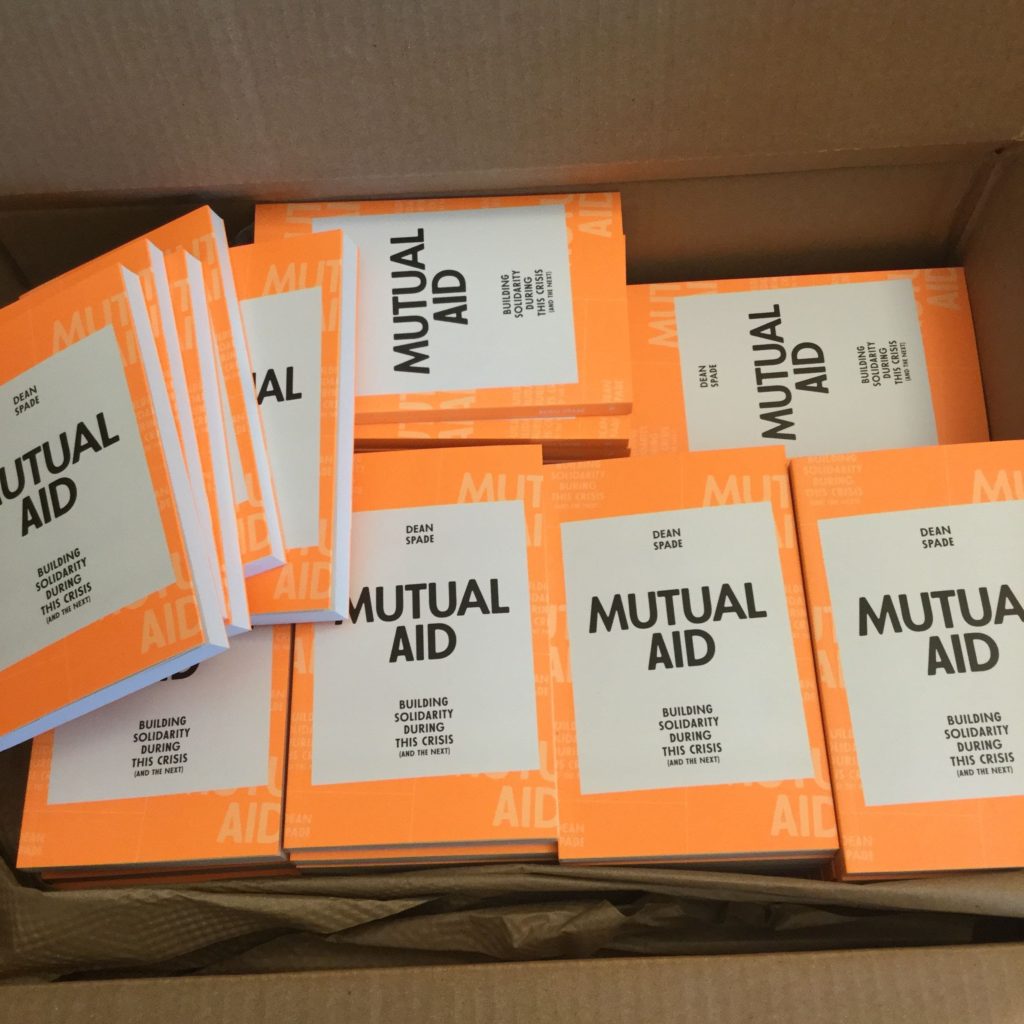
The only thing that keeps those in power in that position is the illusion of our powerlessness. A moment of freedom and connection can undo a lifetime of social conditioning and scatter seeds in a thousand directions.
Many people are feeling great relief that Trump has been voted out and are rightly celebrating the efforts so many people have undertaken to make that happen. But even as we celebrate, we must ensure we do not demobilize, hoping that the new administration will take care of our problems. Unfortunately, we can be certain that the Biden/Harris administration will not address the crises and disasters of climate change, worsening wealth concentration and poverty, a deadly for-profit health care system and racist law enforcement.
Continue reading “Mutual aid will help us survive the Biden presidency”Check out these three videos of recent panel events I was part of.
This panel at NYU’s Center for the Study of Gender and Sexuality was a truly interesting conversation. And there was accidental outfit coordination between panelists.
This event at San Francisco State was a showstopper, featuring so many brilliant thinkers talking about queer justice, colonialism, war, and pinkwashing.
I was honored to be the keynote trainer at Movement Law Lab’s final session in their Build Power, Fight Power online course, in which thousands of lawyers and law students participated over several months. In this talk, I provide a basic rundown of the limits of law and lawyers to social movements, and the potential for us to participate in ethical, transformative ways.
Finally, this event with the Yale Undergraduate Prison Project about queer and trans abolition politics is not to be missed!
This conversation was very rich and useful for me. I hope you enjoy it! I am grateful to the organizers and my fellow panelists.
This is a difficult time, and most of us are under enormous pressure. We might be experiencing isolation, illness, income loss, fear for loved ones, loss of loved ones, anxiety, and many other painful circumstances. A mad map is a guide we can make for ourselves, usually best worked on in moments were we are feeling more centered or having more capacity, that we can turn to in moments where things go sideways or we feel ourselves slipping into more difficult states. A mad map can be like a little gift of preparation for a future self who is going into potentially dangerous waters. Your mad map could have any areas or categories, could be illustrated or include songs or physical movements. Below are just some starter ideas and examples of potential content. Change all the language and content as you want so it is meaningful to you. It could also be made as a collage, a song, a zine, or in whatever way is best for you. Some people share their mad maps with friends and loved ones. You could include sections on how other people can support you when you are in difficulty or crisis, and what you do not want them to say or do if you are in crisis.
I learned about mad maps first in an Icarus Project workshop, and later read this zine. You might also listen to this podcast episode and check out this worksheet that was distributed with the podcast.
Signs of Off-Center Thinking, Feeling, and Action
What are you noticing you are thinking, feeling, and/or doing that feels sideways? Some areas to think about when making this section might include:
Guidelines for Greater Wellness
In this section, try set realistic expectations, not pie in the sky guidelines that will cause shame or feelings of inadequacy if they are not met. You can always increase and adjust later. Be aware of harsh “should” messages that may show up here, which many of us have in areas of eating, work, exercise, money, etc. Focus on gentle realistic steps toward greater wellness, mindful of perfectionism.
This section might include things like:
Bonus Activities that Help
If the prior section is baseline guidance that you are committing to, this section can have things you might aspire to do, things you know would feel good, things that are lovely extras.
Unhelpful/Untrue Thoughts
Painful or difficult distorted thinking increases when we are under pressure. Often it will be familiar thinking that has appeared in other difficult times. Often it feeds behaviors that are bad for us and disconnect us from ourselves and others. Noticing it can give us a chance to interrupt it and see if it can be reduced. Here are some types of distorted thinking that may be coming up, or you can fill this section with whatever is true for you.
Helpful Truths to Remember
In this section, call on your most centered self, your inner adult, your inner kind parent, your highest spiritual self or however you think of that part of you that has loving and compassionate perspective. Go through the distorted thoughts above and list what the part of you thinking each thought needs to hear or remember to diffuse the power of that thought a bit. The examples below may help you generate your list.

In case it’s useful to read my mad map, here’s what I have so far.
Dean’s Mad Map for the Pandemic
Off-center feelings/experiences/behaviors:
Guidelines for Greater Wellness:
Bonus Activities That Help:
Unhelpful/Untrue Thoughts:
Helpful Truths to Remember:
Areas Where I Want to Build More Boundaries or Guidelines:
Duke University Press just published a Care for Uncertain Times syllabus making tons of great work free to read! I am so grateful that my book, Normal Life: Administrative Violence, Critical Trans Politics and the Limits of Law is included, as is the new issue of Social Text on Radical Care in which I published an article on mutual aid. Check it out!
